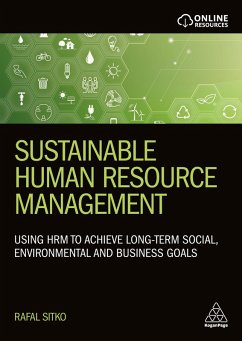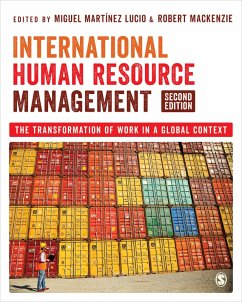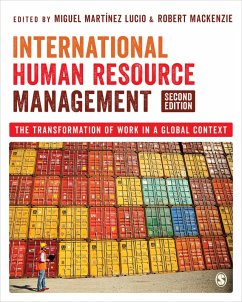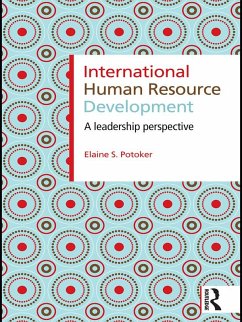
The SAGE Handbook of Human Resource Management (eBook, ePUB)
Versandkostenfrei!
Sofort per Download lieferbar
89,95 €
inkl. MwSt.
Weitere Ausgaben:

PAYBACK Punkte
45 °P sammeln!
The new edition of this SAGE Handbook builds on the success of the first by providing a fully updated and expanded overview of the field of human resource management.Bringing together contributions from leading international scholars - and with brand new chapters on key emerging topics such as talent management, engagement , e-HRM and big data - the Handbook focuses on familiarising the reader with the fundamentals of applied human resource management, while contextualizing practice within wider theoretical considerations. Internationally minded chapters combine a critical overview with discus...
The new edition of this SAGE Handbook builds on the success of the first by providing a fully updated and expanded overview of the field of human resource management.
Bringing together contributions from leading international scholars - and with brand new chapters on key emerging topics such as talent management, engagement , e-HRM and big data - the Handbook focuses on familiarising the reader with the fundamentals of applied human resource management, while contextualizing practice within wider theoretical considerations. Internationally minded chapters combine a critical overview with discussion of key debates and research, as well as comprehensively dealing with important emerging interests. The second edition of this Handbook remains an indispensable resource for advanced students and researchers in the field.
PART 01: Context of Human Resource Management
PART 02: Fundamentals of Human Resource Management
PART 03: Contemporary Issues
Bringing together contributions from leading international scholars - and with brand new chapters on key emerging topics such as talent management, engagement , e-HRM and big data - the Handbook focuses on familiarising the reader with the fundamentals of applied human resource management, while contextualizing practice within wider theoretical considerations. Internationally minded chapters combine a critical overview with discussion of key debates and research, as well as comprehensively dealing with important emerging interests. The second edition of this Handbook remains an indispensable resource for advanced students and researchers in the field.
PART 01: Context of Human Resource Management
PART 02: Fundamentals of Human Resource Management
PART 03: Contemporary Issues
Dieser Download kann aus rechtlichen Gründen nur mit Rechnungsadresse in A, D ausgeliefert werden.













